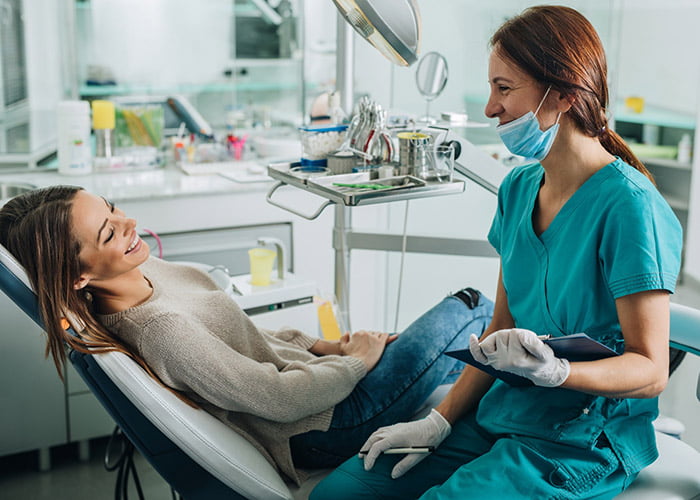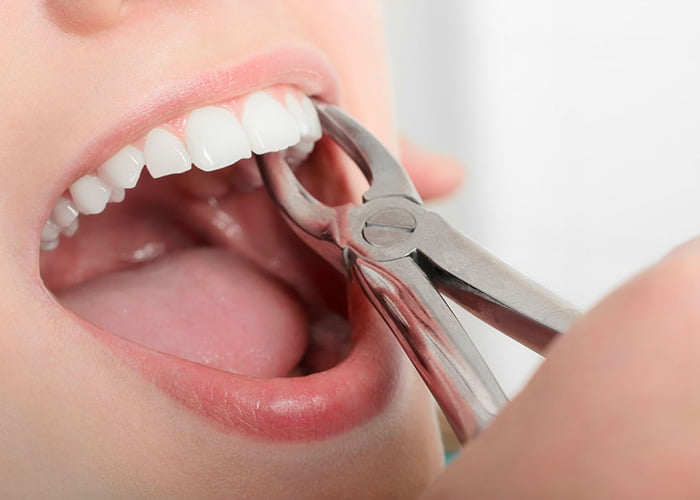When we’re young, we frequently take out our teeth, but losing a tooth as an adult is less attractive. However, you must prepare for your tooth extraction carefully. Don’t stress over that. We’ll provide you with the best planning assistance. Learn more about tooth extractions and how to prepare for tooth extraction by reading on.
Ask Questions in Advance
The first step to prepare for tooth extraction is to ask questions in advance. Ask the dentist any questions you may have during your consultation if you have about the tooth extraction process. Even if you believe a question might sound dumb, do not be afraid to ask as many as you like. To ensure you do not forget anything, it is a good idea to jot down any questions you have in advance and bring the note with you to your session. You will feel less anxious and more prepared if you get some answers in advance about what to expect from the surgery. Here are some examples of helpful questions:
- What happens during tooth extraction?
- What type of anesthesia is required for extraction?
- How long does the extraction process take?
- What medications, if any, have been prescribed?
- How long will it take to recover?
Follow the Plan
There can be pre-and post-extraction recommendations from your dentist. The extraction procedure will go more smoothly if these recommendations are followed. Additionally, doing this will prevent tooth infection and speed up your recovery from tooth extraction.
Share Medical History
It is crucial to discuss your medical history before having a tooth extracted. You ought to be thorough and include all pertinent information. A few details that should be mentioned are as follows:
- History of bacterial endocarditis
- Bacterial endocarditis in the past
- Any mechanical or bio heart valves
- Liver disease
- Artificial joint replacements
- Impaired immune system
A patient may become more prone to infections as a result of several circumstances. For the dental professional to prevent any potential drug interactions, it is crucial to also have a thorough list of all current prescriptions. Your dentist may advise you to cease taking any blood thinners before the consultation if you are currently using them. By doing this, the chance of bleeding will be lower during the surgery. Blood thinners can also delay recovery following a course of treatment.

Anesthesia and Painkillers
You may be given anesthesia or sedation during treatment. Ask them about the substance in it. It is important to know what substances are used to treat the pain associated with tooth extraction. Because some people are well aware that sedation and anesthesia are not good for their bodies. If you clearly state your medical history or have had previous anesthesia, your dentist will create a risk-free treatment strategy. It is recommended that you use a toxic substance. Let your dentist know if you have any special preferences regarding pain relievers.
Do Not Eat Before the Surgery
The next step to preparing for tooth extraction is that you should not eat anything before surgery. Although losing a tooth may seem frightening, you’ll feel more at ease once the surgery is complete. If you are having an extraction under general anesthesia, don’t eat anything 12 hours before the surgery to prevent nausea. You may not need to fast if you are getting local anesthesia; instead, talk to your dentist before the procedure. Additionally, refrain from smoking following the treatment to speed up the healing process and reduce the chance of developing a dry socket, which can have catastrophic repercussions.
Read more: An infected tooth extraction
How to dress?
Try to avoid wearing heavy clothing and dress comfortably. Dental professionals advise putting on lightweight clothing, such as short-sleeved shirts. Wearing jewelry, contact lenses, makeup, fragrances, and body sprays is not recommended.
Talk to Your Insurance Company
One important thing you should keep in mind to prepare for tooth extraction is to talk to your insurance company. A percentage of the cost of oral surgery may be covered by certain medical and dental insurance plans. However, you should always confirm with your supplier to prevent any unforeseen charges and insurance claims. Find out how much of the procedure your dental insurance will cover after discussing the cost of the surgery in advance with your dentist. To find out if your insurance will pay for the tooth extraction, you might ask for a written description of the surgery to give to your insurance company.
Arrange Transportation
After your surgery, you won’t be able to drive yourself home. Your reflexes will be impaired even by local anesthetic. You will never be permitted to operate a vehicle while intoxicated!
It is crucial to arrange for a friend or relative to drive you home following the surgery. If it isn’t possible, prepare to hire an uber or a cab.
You ought to think about taking some time off of work, making childcare arrangements, and inviting someone to stay the night with you. Additionally, we advise prepping some soft foods so you will not have to worry about cooking.
Don’t Stress
We understand that tooth extractions are nerve-wracking for most people. Dentists for life, as experienced dental care providers, it’s important to trust us to know exactly what a safe and efficient tooth extraction is.
Plan Your Aftercare
Plan by requesting your aftercare instructions in advance. Set up someone to pick up your medicine the day of your appointment, stock your refrigerator with soft foods, and do all of this before your appointment. Additionally, make sure you have a cozy spot where you can lie down and rest with your head raised. Typical aftercare recommendations include:
- Avert hot foods and beverages.
- For at least 24 hours, eat soft meals.
- Ice your jaw for a period of 10 to 15 minutes.
- Use a straw sparingly, rinse your mouth thoroughly, and do not spit.
- Brush and floss your teeth, but avoid brushing the area where the extraction was made.
- Spend a few days avoiding demanding activities.
- After at least 24 hours, stop smoking.
Expect some swelling, but call your doctor right away if you experience any of the following signs or symptoms:
- Chest discomfort or breathlessness
- Significant bruising or swelling
- Cold or fever
- Nausea or diarrhea
All of these symptoms point to potential infection and need to be treated right away.
Conclusion
For the greatest preparation for your tooth extraction, remember the tips in this article. I hope the information in this article will be valuable to you. To receive the finest help, get in touch with us via Marysville Dental Care.



